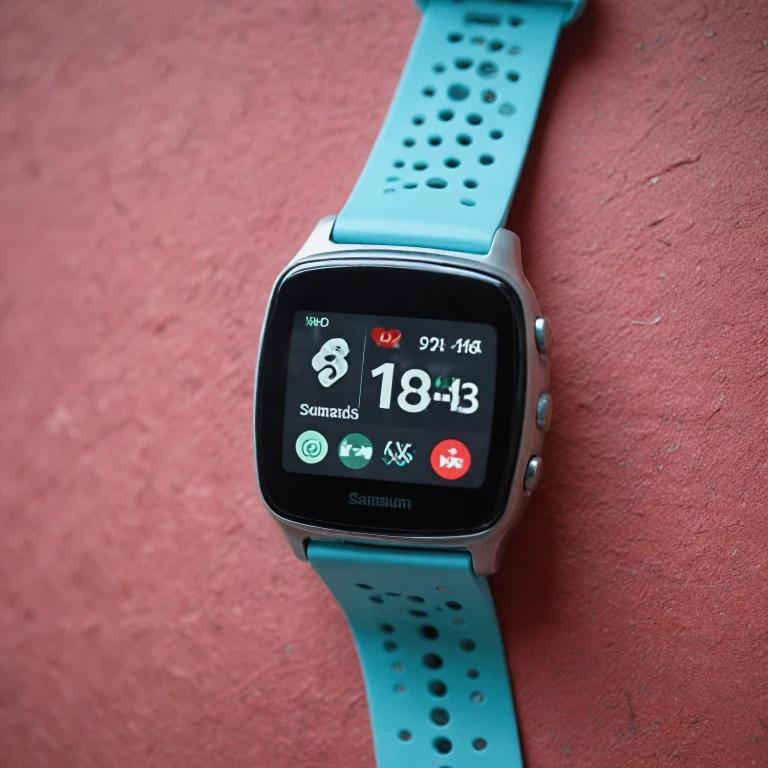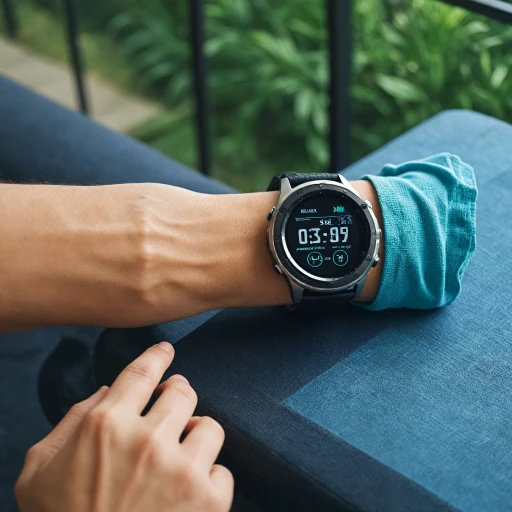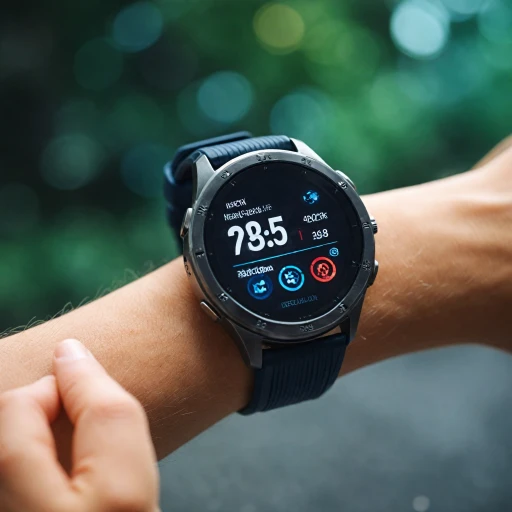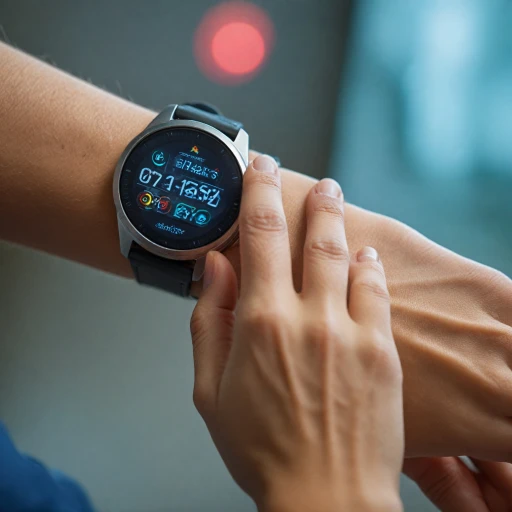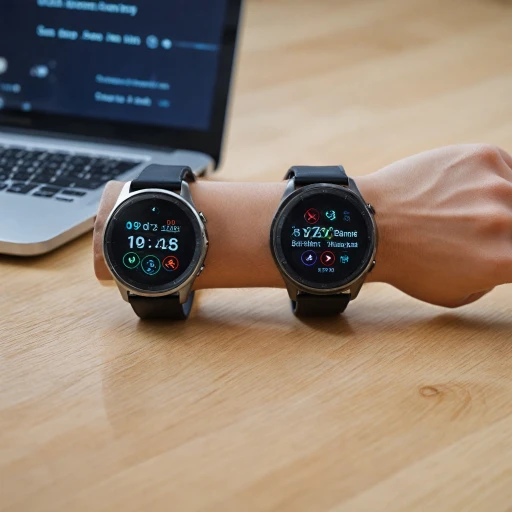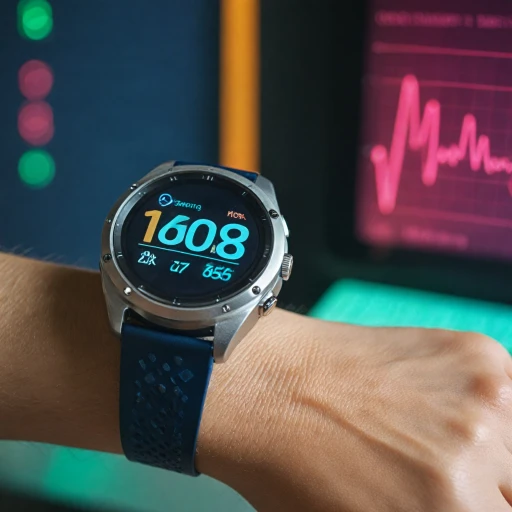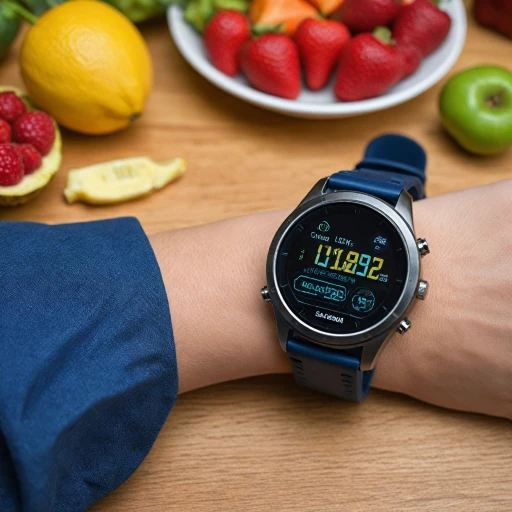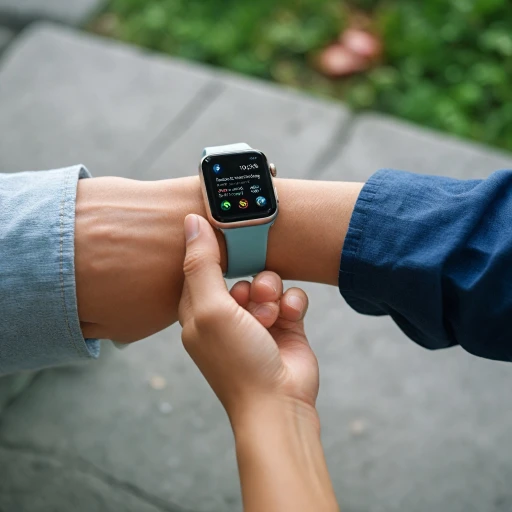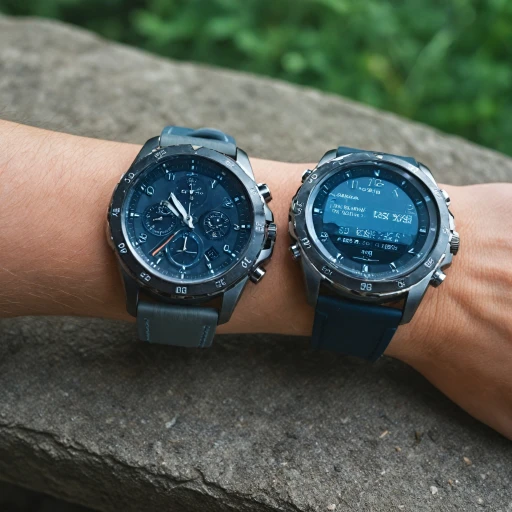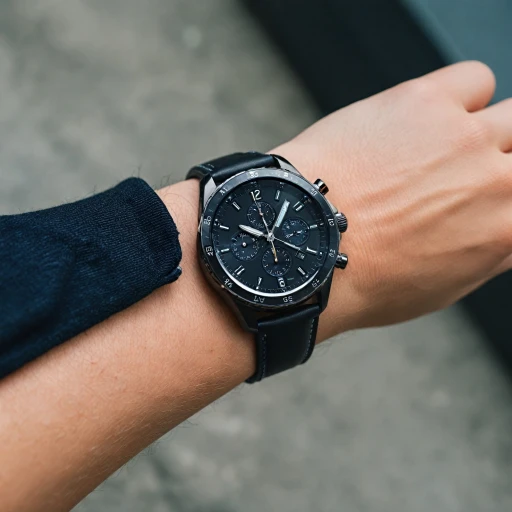
Understanding the importance of health monitoring in smartwatches
The Value of Health Monitoring in Today’s Smartwatches
In the dynamic landscape of wearable technology, the ability to monitor health metrics is a defining feature of smartwatches. As the boundaries of healthcare expand beyond the confines of clinics and hospitals, smartwatches stand at the forefront of personal health management. With capabilities that range from measuring heart rate to tracking sleep patterns, they offer an unprecedented insight into one's well-being.
Smartwatches such as the latest Apple Watch and Samsung Galaxy Watch provide robust health monitoring features. They boast advanced fitness trackers and sensors capable of measuring blood oxygen levels, and even detecting irregular rhythms like atrial fibrillation. This kind of heart monitoring can be crucial in early diagnosis and preventive healthcare.
An essential feature driving the popularity of these devices is their ability to monitor heart rate and ECG, often considered by many as some of the best tools for personal health assessment. The monitoring of blood pressure is another evolving capability, adding to the holistic approach to health management offered by smartwatches.
While some smartwatches focus extensively on specific health metrics, broader functionalities remain essential. The balance between versatile fitness tracking and specific health features is pivotal. This intersection is where the daily utility of smartwatches meets meaningful health insight.
The direct benefits of integrating these devices into daily life extend beyond the individual. By continuously collecting health data, these watches offer a continuous health snapshot, empowering users to make informed decisions, seek medical advice when necessary, and set realistic health and fitness goals.
For a more detailed exploration of how smartwatches are moving toward even more advanced health monitoring, you might be interested in exploring the future of glucose monitoring with these wearable devices.
Key features to look for in a health monitor smartwatch
Essential Features for a Comprehensive Health Tracking Experience
When selecting the ideal smartwatch for health monitoring, it's vital to pinpoint the features that bolster overall wellness. With the increasing integration of technology in our daily lives, many individuals now rely on smart devices to provide meticulous insights into their health metrics. Understanding the capabilities of a smartwatch can aid in ensuring you make a well-informed decision.- Heart Rate Monitoring: Precise heart rate tracking is crucial for athletes and those keeping an eye on cardiac health. Devices such as the Apple Watch and Garmin offer reliable heart rate sensors critical for daily monitoring.
- ECG Functionality: Electrocardiogram (ECG) capabilities allow users to monitor their heart's electrical activity and detect atrial fibrillation issues. This feature, available on certain smartwatches, enhances heart health awareness.
- Blood Pressure Tracking: Monitoring your blood pressure regularly can provide insights into cardiovascular health. Some models, as highlighted in the exploring fitness watches with blood pressure monitoring, offer this feature.
- Blood Oxygen Levels: Keeping track of your blood oxygen saturation can be instrumental in revealing changes in breathing or sleep quality, often included in the latest watch series from brands like Samsung Galaxy and Apple.
- Sleep Tracking and Analysis: Understanding sleep patterns and their impact on overall health is facilitated by advanced sleep tracking technologies integrated into smartwatches, offering insights into sleep quality and restfulness.
- Battery Life: A smartwatch with an extended battery life ensures consistent health monitoring without frequent recharges, crucial for users intent on maintaining uninterrupted data tracking.
- Fitness Tracking: Comprehensive fitness tracking features found in smartwatches cater to various activities, ensuring that tracking capabilities suit your lifestyle. Popular options like the Oura Ring and best fitness trackers provide in-depth activity insights.
- Price Considerations: Keeping an eye on sales and regular price variations can aid in acquiring a smartwatch that fits budgetary constraints without compromising essential health tracking features.
Comparing popular health monitor smartwatches
Comparing Leading Models for Health Monitoring
Selecting the right smart watch for health monitoring involves comparing offerings from leading brands like Apple, Samsung, and Garmin. These brands are often at the forefront due to their dedication to integrating cutting-edge technologies that enhance the user's ability to track health metrics such as heart rate, blood oxygen levels, and more specific indicators like ECG and atrial fibrillation detection.- Apple Watch: Known for its robust health tracking capabilities, the latest Apple Watch series integrates sophisticated sensors that monitor heart rate and provide ECG readings. Its fitness tracker features, combined with seamless integration into the Apple ecosystem, make it a top contender. The battery life balances power with functionality, although it may require more frequent charging compared to some competitors. For those contemplating choosing between brands, the comprehensive guide to Apple Watch and Fitbit can offer valuable insights.
- Samsung Galaxy Watch: The Samsung Galaxy Watch offers a competitive alternative with its advanced health monitoring features, such as sleep tracking and blood oxygen level measurement. Its integration with Android devices and reliable battery life make it an appealing option for many users looking for comprehensive health monitoring.
- Garmin: Renowned for its focus on fitness and outdoor activities, Garmin devices often excel in providing detailed fitness tracking and durable battery life. These watches are ideal for fitness enthusiasts who prioritize workouts and detailed health insights.
The role of smartwatches in preventive healthcare
The Vital Role of Wearable Technology in Health Prevention
Smartwatches have carved a niche in the realm of preventive healthcare, serving as essential tools in daily health monitoring. By providing users with critical health data, these devices contribute to early detection and management of potential health issues before they escalate. Among the most notable features in these wearables is heart rate monitoring. Devices such as the Apple Watch and Samsung Galaxy Watch continuously track the user's heart rate, subverting the risk of overlooking irregular patterns that could lead to conditions like atrial fibrillation. With advancements in ECG technology, users can now have immediate access to cardiac assessments, a significant leap forward in preventive care. Similarly, the inclusion of blood oxygen and blood pressure tracking in smartwatches opens up avenues for monitoring respiratory and circulatory health. Fitness trackers like the Oura Ring offer insights into sleep patterns, aiding users in maintaining overall sleep health, which plays a crucial role in prevention. Discover the top smartwatches for every need to find devices dedicated to comprehensive health tracking. Moreover, these devices emphasize a wholistic approach to health and fitness. By keeping track of fitness levels through metrics like step count, calories burnt, and exercise minutes, they empower users to take charge of their health actively. With features continually expanding, battery life and user interface improvements ensure that these devices remain accessible and efficient for regular use. In essence, the best fitness trackers and smartwatches offer more than just health monitoring—they are integral to a health-conscious lifestyle, supporting users' ongoing efforts in fitness and well-being. With technology advancing rapidly, we can expect future iterations to provide even more comprehensive preventative health solutions.User experiences and reviews of top smartwatches
User Feedback on Popular Smartwatches for Health Monitoring
When considering which smartwatch might best meet your health monitoring needs, hearing from fellow users provides invaluable insights. Many express appreciation for devices like the Apple Watch Series, which shines in its comprehensive suite of health features. The ability to track heart rate, while also offering an ECG feature, stands out as particularly helpful for detecting irregularities such as atrial fibrillation. Furthermore, the seamless integration with the iOS ecosystem and regular updates keep the device cutting edge. In the realm of impressive battery life, the Garmin series is frequently applauded. Users of these watches appreciate the extended battery life, especially when actively using the device's fitness tracker features and monitoring sleep patterns. Fitness enthusiasts often highlight Garmin smartwatches as some of the best fitness monitors available, offering tracking depth that rivals other popular brands. Samsung’s Galaxy Watch is another frequent choice among users, especially those in the Android ecosystem. Reviews often mention the device’s elegant design combined with robust health tracking features, including blood oxygen monitoring. Additionally, the Galaxy Watch is often praised for its affordability when found at a sale price, making it a strong contender in price-conscious comparisons. Fitness trackers like the Oura Ring also draw attention for those seeking minimalist designs. Though not a watch, its ring form factor and strong focus on health metrics like sleep tracking have garnered a loyal user base. Customers generally find the device unobtrusive and simple, yet efficient for health fitness monitoring. When discussing value propositions, users emphasize things like regular price and sale opportunities. While devices like the Apple Watch may come at a heftier price, consumers often view them as an investment in their health, thanks to their rich feature set. In contrast, the Garmin and Galaxy Watch are frequently celebrated for offering excellent functionalities at a more moderate price range, solidifying their places as best for health and fitness tracking. As you explore the myriad of options available, paying attention to user reviews can provide clarity and confidence, ensuring that the smart watch you choose helps you meet your health objectives effectively. For those looking ahead, embracing the role of smartwatches in preventive health care schemes ensures a proactive approach to your wellbeing.Future trends in health monitoring technology for smartwatches
The evolution of health-focused technology in wearables
The future of health monitoring in smartwatches is set to be transformative as technology continues to advance at a rapid pace. Several trends are emerging that indicate how our understanding of health and fitness will be shaped by these devices.- Enhanced Biometrics: Future smartwatches are likely to offer improved sensors for more precise readings of heart rate, ECG, and blood pressure. This could allow for more accurate detection of conditions like atrial fibrillation, enabling users to take proactive measures in health maintenance.
- Integration with Healthcare Systems: As data privacy concerns are addressed, we can expect smartwatches to integrate more seamlessly with medical databases and health management platforms. This would allow healthcare professionals to access real-time data and improve patient care outcomes.
- Advanced Sleep Tracking: Many users already rely on features like sleep tracking for improving their health. The next generation of smartwatches aims to provide deeper insights into sleep quality by analyzing various factors beyond just duration, such as heart rate variability and blood oxygen levels.
- Bigger Focus on Mental Health: With growing awareness around mental well-being, wearables will expand their capabilities to track stress levels and mood patterns. Such features can help users manage their mental health alongside their physical well-being.
- Hybrid Devices: Devices like the Oura Ring and fitness trackers are set to innovate within this space. The combination of a smart watch’s capabilities with the compact, sleek design of rings offers new ways to stay connected with one's health.
- Example: The Oura Ring, which provides insights into activity, heart rate, and sleep, complements the features of a more traditional smartwatch.
- Enhanced Longevity: Battery life remains a critical feature for wearables. Future design improvements will likely focus on extending battery life to reduce the need for frequent charging, enhancing usability and convenience.
- Brands like Samsung Galaxy and Garmin are already making strides with watches offering extended battery performance.

